New Reports
Farmers’ Agency and Experiences of Agricultural Change in Rural Kenya: Insights from Exploratory Fieldwork

- Author: Joanes Atela, Charles Tonui, Dominic Glover
- Publisher: ESRC STEPS Centre
- Publication Date: Mar. 14, 2018.
Full Text of the Report
Impact Evaluation and Implications for Korea's ODA Evaluation System
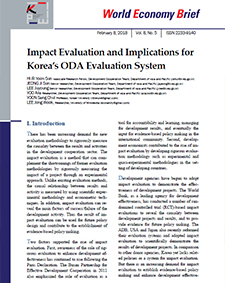
- Author: Yoon Sun Hur, Jisun Jeong, Juyoung Lee, Alia Yoo
- Publisher: KIEP World Economy Brief
- Publication Date: Feb. 14, 2018.
Full Text of the Report
Branding K-REDD+ and its implications for South Korea's middle power diplomacy
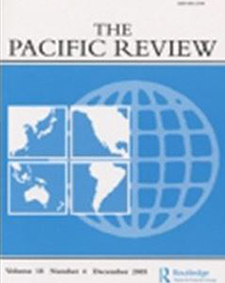
- Author: Yeon-Su Kim, Jae soo Bae, Larry A. Fisher, Jione Jung
- Publisher:The Pacific Review
- Publication Date: Jan. 30, 2018.
Full Text of the Report
The impact of intergovernmental transfers on local revenue generation in Sub-Saharan Africa: Evidence from Tanzania
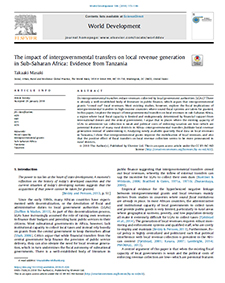
- Author: Takaaki Masaki
- Publisher: World Development
- Publication Date: Jan. 29, 2018.
Full Text of the Report
The impact of agricultural extension services in the context of a heavily subsidized input system: The case of Malawi
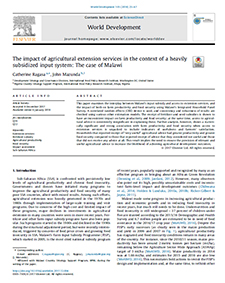
- Author: Catherine Ragasa, John Mazunda
- Publisher: World Development
- Publication Date: Jan. 29, 2018.
Full Text of the Report
Competition or cooperation? Using team and tournament incentives for learning among female farmers in rural Uganda
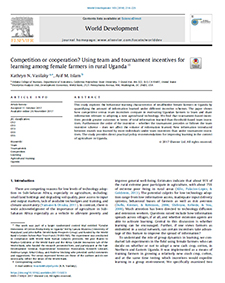
- Author: Kathryn N. Vasilaky, Asif M. Islam
- Publisher: World Development
- Publication Date: Nov. 26, 2018.
Full Text of the Report

